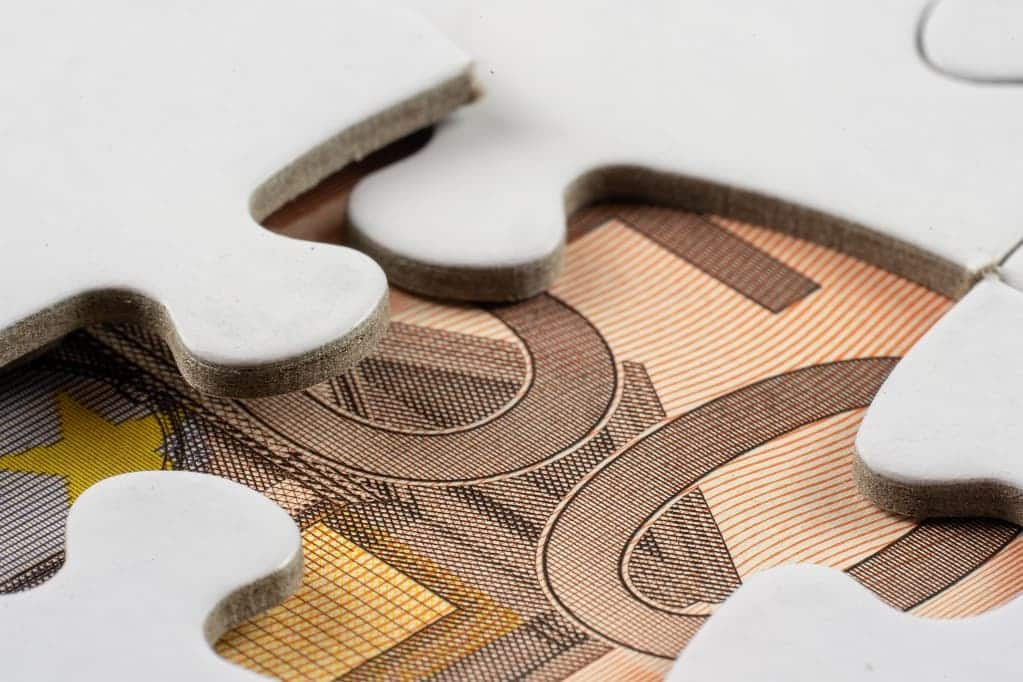How Do Casinos Make Money on Poker: the House Always Wins

Casinos make their money by paying players winnings that are lower than the odds, which would make a game break-even. They host games of chance where the average payouts are lower than the overall wagers’ income. If you are wondering how casinos make money and how they organize the tournaments by keeping the cash game tables flowing, here’s how they do it:
- Rake-cash games
- Tournament fees
What Exactly Is a Rake?
Even if you have never heard of rake before, it is no secret that casinos use the rake amount as their primary income source, especially when the house does not have to bet against the players. After all, the house makes money on everything else, so why leave out poker? In poker, players bet against each other, unlike in games such as roulette or blackjack, where the players bet against the house. Every time you play poker, you have to pay casinos for your participation. Poker rake is a commission taken from every hand in a poker game. It is a commonplace practice and creates the house edge that enables casinos to make money.
Simply put, a rake is a percentage each house takes from a cash game pot or through a tournament entry fee. We can also describe this as a system that is similar to the taxation process.
Further, every casino has different ways of calculating rake. Casinos, generally, do not have any interest in knowing about who won or lost in poker, and the presence of the dealer is to deal with the cards and keep track of the poker game. Poker rakes are not the same in every casino. It differs based on how much the casino charges, what you’re playing, where you’re playing. So Usually, the rake amount varies from 2% to 10% of the cash game pot. In several casinos, the house will take 3% to 6% from the winner’s pot (for such many reasons, you must know how to win money at casinos).
- There is a maximum cap on the rake amount taken out in any individual pot based on specific casino rules.
- Several methods are used to collect the rake amount. Usually, it is collected as a small percentage of the total cash pot. For example, if the poker player ends with $100, the casino collects $5 from the pot and gives $95 back to the winner.
Cash games
 Your local card room will have a variety of cash games with a table that has a built-in “rake box.” After every hand has been dealt, the dealer drops a percentage of the pot down into the rake box before it is handed over to the winner. Casino personnel collect the chips when the rake box is full.
Your local card room will have a variety of cash games with a table that has a built-in “rake box.” After every hand has been dealt, the dealer drops a percentage of the pot down into the rake box before it is handed over to the winner. Casino personnel collect the chips when the rake box is full.
The house takes out an industry standard of 5% of the pot with a $5 cap. So, no matter how big of a pot you win (because you must know how to win money at casino with the best strategy you may have gained), the house can only siphon $5 for casino services from your winnings. However, if the casino has no cap on the rake and the total pot is $600, the winner pays $30, which is three times more. Casinos make much more cash from games because the longer a cash game, the greater the amount of cash it generates without any exposure.
Tournament fees aka “Juice”
Poker tournaments are another stream of revenue for the house. Casinos accomplish this by allocating a certain percentage, say 7% of total player buy-ins back into the prize pool. Poker tournaments are great opportunities for cash games and casinos with large poker rooms (If you are in a small poker room with no sign-up area, ask a dealer how to enter a game). Larger operators of poker tournaments offer services, such as food, drinks, and accommodation, which combined make a significant amount with a lot of people getting in to play poker at the casino.
One surefire way casinos get significant foot traffic through the door are grand tournaments with solid guarantees. Not all the people visiting the casino are exclusively poker players. These people often find their way to slots and table games after the tournament, letting casinos make money from such players over the course of a few days.
Additional rake
If the house is running a bad-beat jackpot or high-hand promotion, it can deduct additional money from the winning hand. It usually is an additional $1 for each promotion. So if a player wins above $50, playing poker at casino where there is a bad-beat jackpot and a high-hand promotion, they can expect about $7 to be deducted from every pot.
Methods Used by Casinos for Taking the Rake
Certain casinos will have different methods of collecting a rake from others. Common methods include-
- For tournaments, a fixed percentage of Buy-in
- For cash game, a percentage of the cash pot
- Dead drop
- Timed collection for cash game
- Fixed fees per hand
Types of Rake
Rakes are often collected in tournament fees, pot rake, subscription fees, fixed fees, and so on. Few online casinos offer Rakeback rewards and rake-free gaming to their players. Before you start playing poker in casino seriously, it is a good idea to familiarize yourself with the different types of rake.
Pot Rake
- Poker rake is considered a widespread practice of charging a commission from every player in the poker game. It creates a house edge, and it is where casinos earn their money; if you want to play poker, you need to pay for participating in the casino.
- In Pot rake, the casino takes a small percentage of the cash pot and is taken directly as the rake. When there is a live poker game, the dealer keeps the chips from the cash pot when the game progresses. When it is completed, the dealer retains the separated chips in a box for safekeeping purposes.
- One of the common methods where casinos make money through players in a poker room is through a pot rake (take a small conversation with the manager, when you are visiting a poker room for the first time), a scaled commission fee taken from each player’s cash pot where the casinos charge a certain percentage on the amount. There are also non-percentage options used by the casinos for taking the rake.
- Generally, a pot rake was used for covering the cost of the poker game, like the dealer’s income for the night. Besides, the dealer’s income is offered by the players in the form of tips.
Timed collection
A Timed collection can be described as a sophisticated type of rake, where the amount is fixed and collected by the casino from every player for a fixed amount of time spent on the poker table. For example, a casino can charge every single player $50 for an hour they play on the table. The player must pay this fixed amount irrespective of how many times they play or whether they are on the losing or the winning side. Simply put, timed collections are like playing on a poker table, just like the longer you stay, the more you need to pay. This type of poker rake is seen in several online casinos because it is easier to collect the money, and it is considered the best option for high stake players.
Fixed fees
Money is collected at a fixed rate, which does not change regardless of the pot value. Casinos introduced these fixed fees because pot rake is not considered an ideal feature for high-stakes poker players, where they might not be comfortable paying whenever they win. By introducing fixed fees, it sorted this problem. A poker player would have to pay an hourly fee to sit at the table. It means that there will be no money taken from the pot when they play the game, and instead, they will be paying a fixed fee. Still, the casino can collect fixed amounts from every poker player, thereby making the collection more acceptable for the high-stakes players by not compromising their profits.
Tournament fees
Tournament fees are one of the most common features of online poker sites or poker news. Tournament fees are easy to understand because the online casinos are needed to publish these fees when they accept entries. Online poker tournaments often have much smaller rakes than the live tournaments at lower stakes because they do not have too many expenses for the launch. On the contrary, live venues have to pay for renting the floor space, tables, pay dealers, and the staff. All of this comes at an extra cost to players. Tournament rake is paid ahead of time as a part of the buy-in. On average, the tournament fees may come up to 10% of the buy-in, yet the casinos can reduce the rake percentage based on the buy-in.
Further, the casinos can cover all the tournament fees like maintenance, security, and running the poker tournament. Also, these fees include the money that has been kept by the casinos for profit. For example, a $100 poker tournament will have a buy-in of $110. This additional $10 is also a rake since the casino withholds it and is used to cover their expenses for organizing the event.
Subscription fees
Playing poker in the casino has its benefits. Few online poker games do not charge rake, but they are subscription-based, where the player needs to pay a yearly or a monthly fee. Moreover, these games make their revenue through other sources like advertising. This subscription fee is seen in online poker rooms where the players are charged with a subscription fee every month. Hence rake is not collected from tournaments or pots.
Rake free
Rake free is a common feature in online poker, and we can find some of the websites have removed the concept of rakes, hence the name rake free. Rather than collecting a rake, the casinos generate income by deposit fees or by charging subscriptions/memberships. Further, several websites and companies offer rake-free service for their frequent players and offer reduced rake percentage. Additionally, financially secure online websites/ casinos offer free cash games for their players. Rake free implies that the player needs to forgo the opportunity of collecting revenue, where it is used to maintain and promote the website and many more.
Rakeback
If the players are familiar with online shopping, there are certain features called cashback; there is a feature similar to cashback called Rakeback in the online poker game. Rakeback is a player rewards method that began in 2004, in which some online poker sites or their affiliate partners return part of the rake as an incentive for them to continue playing on that site. This encourages the players to keep coming and using the website. Some sites allow affiliates to offer rakebacks as a direct percentage of rake and tournament entries paid back to the players. There are, however, online poker rooms that don’t allow affiliates to give rakebacks and offer in-house loyalty programs that give cash and other rewards instead. These rewards are based upon how much players play.
In cash games, Rakeback is calculated using two different methods: dealt and contributed. The dealt method awards the same amount of rakeback to each player dealt into a hand, and the contributed method rewards players based on their actual contribution to the pot.
In poker tournaments, rakeback is deducted from cardroom’s entry fee.
In brick and mortar rooms, the floor person may offer a rake reduction or rake-free play to players willing to start a table shorthanded.
How do casinos spend rake money?
Usually, casinos make money through poker by rental fees, selling drinks, and collecting rakes. Part of the funds is spent on staff salaries, utilities, facility maintenance, and other essential payments. The same applies to rooms where poker is played where the house takes a part. Few casinos have loyalty bonuses, which help the players get cash back from their cash pots.
How do casinos make money on Texas Holdem?
Texas Holdem, more commonly called ‘Hold ’em’ has become one of the most popular poker games globally in both live and online casinos. There are several real money Texas Holdem websites that offer various games and big player pools. Several Texas Holdem websites provide great features, big player pools, huge guaranteed prize pools, and a wide selection of games. The casinos make money by charging fees on the games where every hand in the poker needs to pay.
Final Thoughts: Know the Rake and How it Affects You
You now know how casinos make money from poker and manage to have huge tournament prizes while running games. With rake in place and all the additional streams of income from players trying their luck at games, poker can be a very reasonable means for casinos to improve their bottom line.
However, it would help if you also educated yourself on how rakes can affect your game. Even if you’re a perfect player, games with impossibly high levels of rake and high caps or none at all can be challenging to beat.
If you have multiple options, games with lower rakes are your best bet.



